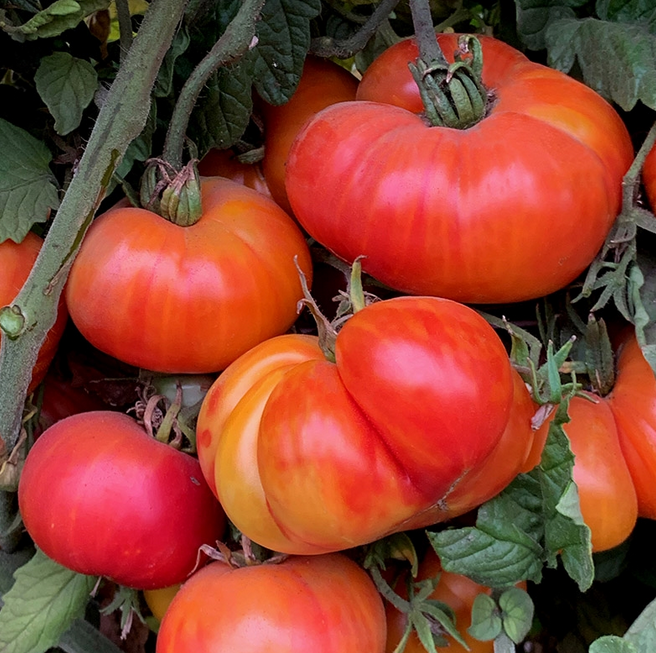Joya de Oaxaca (Oaxacan Jewel)
$4.00
Heirloom, Organic Seed
85 days. This late-season heirloom is worth waiting for! An old Mexican heirloom that produces gorgeous red and yellow bi-colored fruit of up to 12 oz! The interior flesh is marbled red with a rich, sweet and fruity flavor.
Photo: Tomato Fest
Out of stock


Reviews
There are no reviews yet.